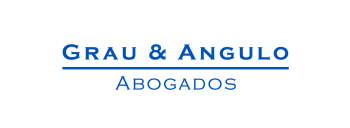In a May 20 2014 judgment, served on June 9 2014, the Navarra Court of Appeal dismissed Boehringer's appeal against the June 20 2012 judgment of Pamplona Commercial Court No 1, which revoked the Spanish supplementary protection certificate (SPC) for the combination product telmisartan + hydrochlorothiazide (hctz). In the same decision the appeal court dismissed Boehringer's appeal against the first-instance rejection of its subsidiary counterclaim for the amendment of the basic patent.
In April 2010 Cinfa and Actavis filed a revocation action against Boehringer's Spanish SPC C200200018 for telmisartan + hctz. They claimed that the SPC had been granted in breach of Articles 3(a) and 3(c) of the EU Supplementary Protection Certificates for Medicinal Products Regulation (469/2009), in relation to Article 15.1(a), because the basic patent (EP0502314 - ES2118095):
- did not protect telmisartan + hctz; and
- had been the basis for granting another SPC for telmisartan.
In its defence pleading, Boehringer argued that the granting of the SPC was not contrary to Articles 3(a) and 3(c) of the regulation. In case the revocation action was upheld, it filed a subsidiary counterclaim requesting amendment of the basic patent which, according to Boehringer, would overcome Cinfa and Actavis's objections. For this latter purpose, Boehringer tried to rely on Article 138.3 of the European Patent Convention.
By an order of February 11 2011, confirmed by an order of April 19 2011, the Pamplona Commercial Court No 1 did not admit Boehringer's subsidiary counterclaim for procedural reasons. Thus, Boehringer was not allowed to amend the patent within the proceedings.
Subsequently, on June 20 2012 the court upheld Cinfa and Actavis's revocation action and declared the invalidity of the SPC on the basis of Article 3(a) of the regulation, in relation to Article 15.1(a). The court followed the case law of the European Court of Justice (ECJ) in Medeva (Case C-322/10), according to which Article 3(a) of the regulation precludes the granting of an SPC for a combination of active ingredients when the claims of the basic patent specify only one or some of the active ingredients of the combination. This case law can also be found in the ECJ's November 25 2011 order in Daiichi (Case C-6/11).
Boehringer appealed the February 11 and April 19 2011 court orders refusing the filing of its subsidiary counterclaim. Boehringer requested that the first-instance proceedings be invalidated and the file be sent back to the first-instance court, so that the proceedings would continue from the point at which the subsidiary counterclaim should have been admitted. Further, Boehringer appealed the first-instance judgment, arguing that the SPC should be held valid in any event.
Cinfa and Actavis opposed Boehringer's appeals.
In its May 20 2014 judgment, the Commercial Chamber of the Navarra Court of Appeal dismissed both appeals.
The court dismissed the appeal filed against the court orders based on the following arguments:
- Boehringer's subsidiary counterclaim had formally lost its object upon publication of a revised translation of the patent which did not include the claim that it intended to amend (original Claim 7) or another claim identical to it.
- The petition to amend the claims of the patent could not be consolidated into an action for revocation of the SPC derived from the same.
- Article 138.3 of the European Patent Convention is not applicable in SPC invalidity proceedings. This provision allows the limitation of the patent only in invalidity proceedings relating to the same, against those who promote such invalidity.
- Article 3 of the regulation states that the date to be used to determine whether the product for which an SPC is sought is protected by a basic patent in force is the filing date of the SPC application.
Regarding the appeal against the judgment, the appeal court's main reasoning was as follows:
- The parties did not dispute the fact that the telmisartan + hctz combination was not specified in the claims of the basic patent.
- The patent did not protect hydrochlorothiazide or the combination of telmisartan + hctz as an autonomous invention.
- Consequently, the granting of the SPC was contrary to Article 3(a) of the regulation, as the first-instance court correctly concluded, based on the ECJ's Medeva decision.
- In any case, even if the patent had specifically claimed the combination of telmisartan + hctz, the granting of the SPC would still be contrary to Article 3(c) of the regulation, as the same patent had already served as basis for the granting of another SPC for telmisartan, whose first marketing approval was earlier in time than that of the telmisartan + hctz combination. This was established in the ECJ's Actavis decision (Case C-443/12) regarding irbesartan + hctz.
- In light of the ECJ's Medeva and Actavis decisions, and contrary to Boehringer's allegations, it was unnecessary to submit any petition for a preliminary ruling to the ECJ or to stay the proceedings until the ECJ has ruled on a pending preliminary ruling petition from the UK Patents Court in a case relating to the validity of the UK SPC for the telmisartan + hctz combination.
Boehringer may appeal this decision before the Supreme Court. If it does not, the judgment will become final and the SPC will be invalid.
For further information on this topic please contact Sara Pelaz at Grau & Angulo by telephone (+34 93 202 34 56), fax(+34 93 240 53 83) oremail ([email protected]). The Grau & Angulo website can be accessed at www.gba-ip.com.



